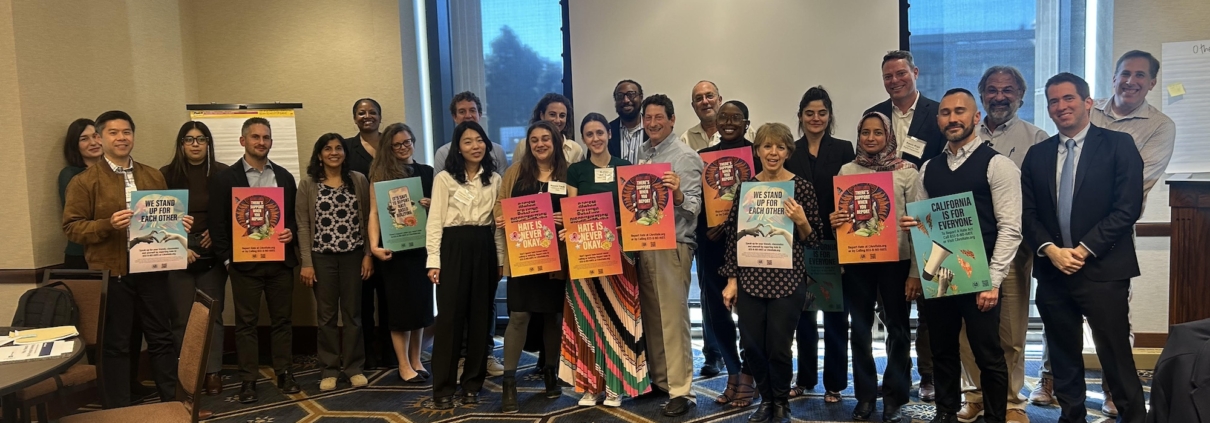ISH hosts the California Commission on the State of Hate for Convening on Online and K-12 Hate Prevention Policy
On October 31, scholars, policy makers, educators, and advocates from across California gathered in the Luskin Conference Center to develop innovative solutions for preventing and reducing hate online and in California schools. This convening was part of the UCLA Initiative to Study Hate’s (ISH) research partnership with the California Civil Rights Department (CRD) and the California Commission of the State of Hate, and part of ISH’s larger mission to explore how cutting-edge research might inform the fight against hate.
The convening brought together experts from 15 disciplinary backgrounds including law, education, English, computer science, and public policy for an intensively collaborative exploration of how research can inform policy making and help prevent hate. The convening also built upon listening sessions held by CRD with several community-based organizations about their policy ideas and initiatives.
After welcoming remarks from ISH founder and Bedari Kindness Institute director Dr. David Myers and the California Civil Rights Department director Kevin Kish, the day began with a collective reflection on the questions and goals of the convening. Participants then split into breakout groups, one of which focused on preventing hate and prejudice in K-12 schools while the other explored how to stem the virulent spread of hate in the digital world.
During these breakout sessions, the K-12 group laid out their overarching goals for California school children, such as improving their media literacy, conflict resolution, and awareness of difference. Educators discussed the difficulties teachers and administrators face in implementing anti-hate programming, and the challenge of counterbalancing the potentially harmful content children consume both passively and actively in digital spaces. Data scientists also emphasized the challenges of scaling anti-hate initiatives while still responding to specific local concerns. The group also identified the need to engage actors and resources outside of schools, such as local artists and communal spaces, and to empower children as agents in their own ethical development.
Discussions in the online group focused on how best to encourage data sharing between corporate, governmental, and academic organizations, as well as identifying the types and scale of data collection necessary to develop effective solutions to the groundswell of hate and incitement that has invaded social media spaces. Researchers and policy experts also articulated the need for resources that help inoculate users to the disturbing content they will almost inevitably encounter in their digital lives. Like the K-12 group, the online group also discussed the challenge of hate’s mutability, which necessitates responsive strategies and solutions that can continually adapt across time and space. Further, this group discussed approaches to addressing online hate that extend beyond policy interventions, such as partnering with third-party software companies to develop innovative prevention and mitigation strategies.
To close out the convening, the breakout groups met and shared their core questions, concerns, and resolutions. Participants then collectively identified the most important takeaways from the day and recommitted to working across departments and sectors to promote a hate-free California.
ISH is currently compiling a report that summarizes the major takeaways of this convening, which will in turn be presented to the California Commission on the State of Hate and published on the ISH website.
ISH hopes that this will be the first of many such convenings, as this kind of exchange between experts, policymakers, and community organizations is vital to effectively addressing the looming threats of hate groups, bullying, and radicalization.

